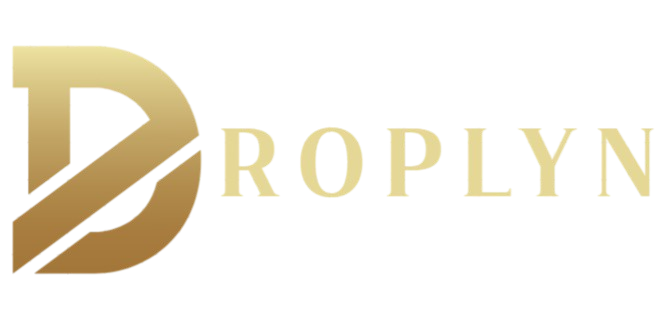BLOG
Is Tech Making foss tugs portland Better or Worse?

The maritime industry is no stranger to change. From sailboats to steam engines, each technological advancement has propelled the industry forward. Today, the focal point of this transformation is the incorporation of technology into tugboat operations. Specifically, Foss Tugs in Portland are at the forefront of these changes. But is this technological wave making things better or worse? This blog post dives into the various facets of this question, providing you with a comprehensive look at how technology is impacting Foss Tugs in Portland.
The Age of Digital Tugboats
Navigating High-Tech Waters
In recent years, foss tugs portland have become increasingly sophisticated. Advanced navigation systems, automated controls, and real-time data analytics are just a few examples of how technology is enhancing tugboat operations. These advancements reduce human error and improve safety, making the waters a bit less treacherous for both vessels and crew.
Safety First
One of the most significant benefits of advanced technology is the improvement in safety protocols. Modern tugboats are equipped with state-of-the-art radar systems, GPS, and collision avoidance systems. These technologies allow for more precise maneuvering, especially in congested ports like Portland. Enhanced safety measures mean fewer accidents and a safer working environment for everyone involved.
Efficiency Gains
Efficiency is the name of the game when it comes to tug operations. With advanced engines and fuel-efficient designs, modern tugboats can perform their duties faster and with less environmental impact. Automated systems also mean that tasks can be completed with fewer crew members, reducing operational costs for companies like Foss Tugs.
The Impact on the Workforce
Job Displacement Concerns
Technological advancements often come with concerns about job displacement. Automated systems can perform tasks that once required human intervention, leading to fears that jobs may be lost. However, it’s essential to recognize that while some roles may become obsolete, new opportunities are emerging in tech maintenance and operations.
Skill Upgradation
The integration of technology necessitates a workforce with upgraded skills. Mariners now need to be proficient in operating advanced navigation systems and automated controls. Training programs are increasingly focusing on digital literacy, ensuring that the workforce is well-equipped to handle modern tugboat operations.
Increased Job Satisfaction
Interestingly, the adoption of technology can also lead to higher job satisfaction. Automated systems take over repetitive and physically demanding tasks, allowing crew members to focus on more engaging aspects of their jobs. This shift can lead to a more motivated and satisfied workforce.
Environmental Implications
Greener Operations
Portland, like many other cities, is under pressure to reduce its environmental footprint. The maritime industry is no exception. Modern tugboats are designed with fuel efficiency in mind, significantly reducing greenhouse gas emissions. Hybrid and electric tugs are also becoming more common, offering a cleaner alternative to traditional diesel-powered boats.
Waste Management
Advanced technology isn’t just limited to navigation and operations; it also plays a crucial role in waste management. Modern tugboats are equipped with systems that minimize waste production and ensure that any waste generated is disposed of responsibly. This is a significant step forward in making the maritime industry more sustainable.
Monitoring Environmental Impact
Real-time data analytics allow companies to monitor their environmental impact more accurately. Foss Tugs can track fuel consumption, emissions, and other critical metrics, enabling them to make data-driven decisions to mitigate their environmental impact. This proactive approach ensures that the company remains compliant with environmental regulations while contributing to a cleaner planet.
Economic Considerations
Cost Savings
The initial investment in advanced technology can be substantial, but the long-term cost savings are undeniable. Fuel-efficient engines and automated systems reduce operational costs, making it a financially sound decision for companies like Foss Tugs. These savings can be reinvested into further technological advancements, creating a cycle of continuous improvement.
Competitive Advantage
In a competitive market, staying ahead of the curve is crucial. By adopting the latest technology, Foss Tugs not only improve their operations but also gain a competitive edge. Clients are more likely to choose a company that can offer safer, more efficient services, giving Foss Tugs an advantage over its competitors.
Boosting Local Economy
The technological transformation of Foss Tugs also has positive implications for the local economy. Investment in advanced technology creates jobs in tech development and maintenance. Additionally, improved efficiency and safety attract more business to Portland’s port, boosting the local economy.
Challenges and Obstacles
High Initial Costs
While the long-term benefits are clear, the initial costs of integrating advanced technology can be a significant barrier. Small and medium-sized companies may struggle to make this investment, potentially widening the gap between different players in the industry.
Cybersecurity Threats
With increased digitalization comes the risk of cyber-attacks. Tugboats rely on a range of digital systems for navigation and operations, making them vulnerable to cyber threats. Ensuring robust cybersecurity measures is crucial to protect these systems from potential attacks.
Resistance to Change
Change can be challenging, especially in an industry with longstanding traditions. Some crew members may resist adopting new technology, preferring traditional methods. Overcoming this resistance requires effective training programs and clear communication about the benefits of technological advancements.
Case Studies and Real-World Examples
Foss Tugs’ Digital Transformation
Foss Tugs in Portland have been pioneers in adopting advanced technology. From state-of-the-art navigation systems to fuel-efficient engines, they have embraced digital transformation wholeheartedly. Their success serves as a compelling case study for other companies considering similar investments.
Global Comparisons
It’s also valuable to look at how other ports around the world are leveraging technology. For instance, the Port of Rotterdam has implemented autonomous tugboats, significantly improving efficiency and safety. These global comparisons offer valuable insights and lessons that can be applied to Portland’s maritime industry.
Lessons Learned
Both successes and challenges offer valuable lessons. For example, the Port of Rotterdam’s experience highlights the importance of robust cybersecurity measures. On the other hand, Foss Tugs’ success underscores the benefits of investing in training programs to upskill the workforce.
The Future of Tugboat Technology
Autonomous Tugboats
One of the most exciting developments on the horizon is the advent of autonomous tugboats. These vessels can operate without human intervention, guided by advanced AI and navigation systems. While fully autonomous tugboats are still in the experimental stage, they represent the future of the industry.
AI and Machine Learning
Artificial intelligence and machine learning are set to play a significant role in the future of tugboat operations. These technologies can analyze vast amounts of data to optimize routes, predict maintenance needs, and improve safety measures. The potential applications are virtually limitless.
Continuous Innovation
The maritime industry is continuously evolving, and staying ahead requires a commitment to innovation. Companies like Foss Tugs must remain agile, constantly seeking new ways to integrate advanced technology into their operations. This proactive approach will ensure they continue to lead the industry in the years to come.
Conclusion
The integration of technology in tugboat operations is a double-edged sword, offering both significant benefits and challenges. For Foss Tugs in Portland, the adoption of advanced technology has led to improved efficiency, enhanced safety, and a reduced environmental footprint. However, it also comes with challenges such as high initial costs and cybersecurity risks.
Ultimately, the key to navigating this digital transformation lies in a balanced approach. By investing in training programs, implementing robust cybersecurity measures, and continually seeking innovative solutions, Foss Tugs can harness the full potential of technology. This approach will ensure they remain at the forefront of the maritime industry, ready to tackle the challenges and opportunities of the future.
For those looking to explore further, consider signing up for updates on the latest advancements in maritime technology. Stay informed and stay ahead in this rapidly evolving industry.
BLOG
Discover Wellness with Ann Bullock at ://vital-mag.net

In today’s fast-paced world, finding time for wellness can be challenging. But what if taking care of your health could be as joyful as it is beneficial? Enter Ann Bullock’s blog at ://vital-mag.net, where fitness meets fun, and wellness is a holistic experience. This blog post will introduce you to the vibrant world of Ann Bullock, offering insights into her unique approach to health and wellness. Join us as we explore the core themes of her blog, including weight loss, strength training, sleep therapy, nutrition courses, and meditation.
Meet Your Guide to Wellness
Ann Bullock is not your ordinary fitness guru. Her blog at ://vital-mag.net stands out by emphasizing joy and laughter in wellness pursuits. Ann’s philosophy is simple yet profound—fitness should be fun and fulfilling. By integrating laughter into workouts and promoting a balanced lifestyle, she offers a refreshing perspective on health.
Ann’s approach encourages readers to find joy in every step of their wellness journey. Whether you’re counting reps or indulging in a moment of meditation, her guidance ensures you do it with a smile. Her blog serves as a gentle reminder that fitness is not just about reaching goals but also enjoying the process.
By sharing her personal experiences and insights, Ann creates a relatable space for readers to explore their own path to wellness. Her stories inspire readers to approach fitness with a playful attitude, making her blog an inviting place for anyone looking to enhance their health.
The Art of Weight Loss
Weight loss is often seen as a daunting task, but Ann Bullock redefines it as an enjoyable challenge. Her blog offers practical tips and strategies to shed pounds while maintaining a positive outlook. From setting achievable goals to celebrating small victories, Ann makes weight loss an engaging experience.
Ann emphasizes the importance of listening to your body and taking a mindful approach to eating. Her blog provides readers with tools to develop a healthy relationship with food, focusing on nourishment rather than restriction. With Ann’s guidance, weight loss becomes a sustainable and empowering journey.
By sharing success stories and offering personalized advice, Ann builds a supportive community for those pursuing weight loss. Her blog encourages readers to celebrate every step forward, fostering a sense of accomplishment and motivation.
Building Strength with Joy
Strength training is another pillar of Ann’s blog, where she combines exercises with elements of fun. Her unique routines incorporate laughter and creativity, making workouts something to look forward to. Ann’s approach helps readers build strength while enjoying the process.
Her blog offers detailed guidance on developing a strength training routine that fits individual needs and preferences. From beginner tips to advanced techniques, Ann covers all aspects of strength building. She encourages readers to experiment and find what works best for them.
Ann’s focus on joy and fulfillment in strength training sets her blog apart. By turning workouts into playful challenges, she motivates readers to push their limits and achieve their fitness goals with enthusiasm.
Sleep Therapy for Restful Nights
Quality sleep is essential for overall well-being, and Ann Bullock’s blog highlights its importance. Her sleep therapy tips help readers create a restful environment, ensuring they wake up refreshed and ready to tackle the day.
Ann’s blog offers practical advice on establishing a bedtime routine, optimizing sleep environments, and managing stress for better rest. Her holistic approach to sleep therapy addresses both physical and mental aspects, promoting a balanced lifestyle.
By prioritizing sleep, Ann empowers readers to improve their quality of life. Her blog serves as a valuable resource for those seeking to enhance their sleep habits and reap the benefits of restorative rest.
Nutrition Courses to Nourish the Soul
Nutrition is a fundamental aspect of Ann’s wellness philosophy. Her blog features comprehensive nutrition courses that guide readers toward healthier eating habits. Ann’s approach focuses on nourishment, balancing indulgence with mindful choices.
Her blog covers various topics, from understanding nutrition labels to meal planning and cooking at home. Ann provides readers with the knowledge needed to make informed decisions about their diets, promoting a holistic approach to nutrition.
Ann’s courses offer practical tips and strategies for incorporating nutritious foods into daily life. By making nutrition accessible and enjoyable, her blog becomes a go-to resource for anyone looking to improve their diet and overall health.
Meditation for Mindful Living
Meditation is a powerful tool for achieving mental clarity and emotional balance. Ann Bullock’s blog introduces readers to the art of meditation, offering guidance on how to incorporate it into daily routines.
Her blog provides step-by-step instructions for beginners, as well as tips for enhancing meditation practices. Ann emphasizes the importance of mindfulness, helping readers cultivate a sense of presence and peace.
By integrating meditation into her wellness philosophy, Ann offers a comprehensive approach to well-being. Her blog inspires readers to explore the benefits of mindfulness and discover the tranquility that meditation brings.
Community Connection
Connecting with like-minded individuals is a key to sustained wellness, and Ann’s blog fosters a strong sense of community. Readers are encouraged to share their experiences, tips, and challenges, creating a supportive network.
Ann’s blog features interactive elements like forums and comment sections, where readers can engage in meaningful conversations. By building a community around wellness, Ann provides a space for readers to learn, grow, and inspire each other.
The sense of belonging and shared purpose enhances the overall wellness experience. Ann’s blog is more than just a collection of articles; it’s a community of individuals committed to improving their health and well-being together.
Exclusive Insights and Resources
In addition to her blog posts, Ann offers exclusive resources for subscribers. Her newsletter keeps readers updated on the latest wellness trends, providing valuable insights and tips directly to their inbox.
Subscribers gain access to curated content, including workout plans, nutrition guides, and meditation playlists. Ann’s dedication to providing high-quality resources ensures that readers receive the support they need to thrive.
By subscribing, readers become part of Ann’s wellness community, gaining access to personalized advice and exclusive offers. Her blog offers a wealth of information that empowers readers to take control of their health and well-being.
Inspiring Success Stories
Ann Bullock’s blog is rich with inspiring success stories from readers who have transformed their lives through her guidance. These stories serve as powerful reminders of the impact that wellness can have on our lives.
Each success story offers valuable insights and lessons, motivating readers to pursue their own wellness goals. Ann celebrates the achievements of her community, highlighting the diverse paths to health and happiness.
These stories create a sense of camaraderie and inspiration, encouraging readers to persevere in their wellness journeys. Ann’s blog becomes a beacon of hope and possibility, empowering individuals to achieve their fullest potential.
Expert Advice and Collaboration
Ann collaborates with a team of wellness experts to bring readers the most accurate and up-to-date information. Her blog features guest posts and interviews with nutritionists, fitness trainers, and mental health professionals.
These collaborations provide readers with diverse perspectives and insights, enriching their wellness knowledge. Ann’s commitment to accuracy and expertise ensures that her blog remains a trusted source of information.
By partnering with experts, Ann enhances the credibility and reliability of her blog. Readers can trust that the advice and guidance they receive are grounded in research and experience.
A Journey Toward Holistic Health
Ann Bullock’s blog encapsulates the essence of holistic health, emphasizing the interconnectedness of physical, mental, and emotional well-being. Her approach encourages readers to explore all aspects of wellness, from fitness to mindfulness.
By taking a comprehensive approach, Ann provides readers with a roadmap to achieving balance and harmony in their lives. Her blog inspires individuals to prioritize their health, creating a ripple effect of positive change.
With her guidance, readers embark on a transformative wellness journey, discovering the joy and fulfillment that come from nurturing every aspect of their being.
Conclusion
In a world where wellness can often feel overwhelming, Ann Bullock offers a refreshing perspective. Her blog at ://vital-mag.net invites readers to find joy in their wellness journeys, encouraging them to laugh, explore, and grow. Whether you’re looking to lose weight, build strength, improve sleep, nourish your body, or practice mindfulness, Ann’s blog provides the tools and inspiration needed to succeed.
By joining her community, readers gain access to a wealth of resources, expert advice, and a supportive network of like-minded individuals. Ann’s holistic approach to wellness empowers individuals to take charge of their health, creating a life filled with joy, vitality, and balance.
Explore Ann Bullock’s blog today and discover the power of wellness done right. Whether you’re a seasoned fitness enthusiast or just starting your wellness journey, there’s something for everyone at ://vital-mag.net. Join the community and take the first step toward a healthier, happier you.
BLOG
Goodmooddotcom.com Travel Archives: Journey Through Time and Discover the Stories of the World

Travel offers a window into the past in addition to a change of environment. Every location is full with intriguing tales that beg to be discovered and provide a window into the spirit of bygone eras.
Experiencing old cities and historical ruins gives one a real link to the past. It seems as though you can practically hear the footsteps of people who have gone before you as you stroll down cobblestone streets.
Our understanding of other civilizations is enhanced by the secrets and stories that each monument and historic site has to offer. We experience the heritage of previous civilizations personally by fully immersing ourselves in these locations and becoming a part of their continuing tale.
Museums, brimming with artifacts, bring history to life beyond what textbooks can offer. Each artifact stands as a testament to human creativity and endurance, offering a silent yet profound connection to our shared past.
Through Goodmooddotcom.com Travel Archives, we not only explore where we’ve been but also gain a deeper understanding of our own identities. This journey bridges the gap between past and present, revealing the enduring connections that shape who we are today.
Uncover the Stories Behind Iconic Historical Landmarks

Like live storytellers, historical places and landmarks share the rich tapestry of our past with us. Each brick and stone bears evidence to the centuries it has seen.
Consider the historic remnants of Machu Picchu. This Incan castle, perched high in the Andes, provides breathtaking views along with a strong historical tie. Strolling on its terraces is like Goodmooddotcom.com Travel Archivesback in time and seeing the Inca world of old.
Similarly, the Colosseum in Rome stands as a monumental relic of gladiatorial combat. This iconic amphitheater, once the stage for life-or-death contests, continues to fascinate millions annually, drawing visitors into the dramatic spectacles of ancient entertainment.
The Great Wall of China, stretching across rugged terrains, is a remarkable feat of human engineering. Trekking its length provides a unique opportunity to marvel at both the natural landscape and the monumental effort that went into its construction.
Each of these landmarks invites us to explore and reflect, reminding us that travel is not just about reaching a destination. It’s an opportunity to connect with history on a personal level, enriching our understanding of the past while deepening our appreciation of the present.
Immerse Yourself in the Richness of Global Cultures Through Goodmooddotcom.com Travel Archives
A rare opportunity to interact extensively with a range of cultures and customs is presented by travel. Every place reveals itself like a vibrant tapestry, full with unique local flavors, customs, and tales that give it its own identity.
Interacting with locals offers a rewarding experience, enriching your journey. Sharing meals or joining in local festivals brings authenticity to your visit, allowing you to savor genuine cuisine and learn traditional dances directly from those who live and celebrate these customs daily.
Artisan markets serve as vibrant showcases of cultural heritage. Handmade crafts reveal stories and skills passed down through generations, offering a meaningful way to support local artists and preserve their traditions.
Every culture has its own rhythm, expressed through music, dance, and art that resonate deeply. By immersing yourself in these cultural experiences, you forge connections that extend beyond geographical and temporal boundaries. This immersion transforms your travels into a richer, more meaningful experience, far beyond merely visiting historical sites.
The Evolution of Goodmooddotcom.com Travel Archives
Over time, there have been significant changes to travel and tourism. Every period has had a distinct influence on how we traverse the world, from the early days of caravans crossing deserts to the present day of fast jet travel.
Trade and conquest were the main drivers of Goodmooddotcom.com Travel Archivesin the past. To find resources or to build empires, explorers traveled into undiscovered territory. Another important factor was the quest for knowledge, with academics traveling to promote intellectual progress and share views.
With the introduction of railroads and steamships, the Industrial Revolution heralded a revolutionary era in which remote locations became more attainable. Once a luxury only available to the wealthy, travel has become a common experience for everyone.
In the contemporary era, technology has revolutionized Goodmooddotcom.com Travel Archives. Online booking platforms and social media offer unparalleled convenience and inspiration, simplifying trip planning. Virtual reality now provides immersive previews of distant locations, enhancing the travel experience before setting foot there.
This evolution not only highlights advancements in transportation but also reflects a shift in cultural values towards greater exploration and connectivity.
Discovering Hidden Gems: Essential Tips for Authentic Exploration

Exploring hidden gems requires a blend of flexibility, cultural sensitivity, and responsible Goodmooddotcom.com Travel Archives practices. To fully appreciate these off-the-beaten-path destinations, keep these key principles in mind.
Embrace flexibility as you journey through lesser-known spots. Unexpected changes or detours often lead to the most memorable experiences. Approach each day with an open mind, ready to adapt to local conditions and seize spontaneous opportunities.
Respecting local cultures is crucial when visiting remote or traditional communities. Adhering to local customs, dress codes, and cultural practices ensures a respectful and genuine interaction with the places you explore.
Talking to informed locals or tour guides can improve your experience. These knowledgeable locals provide exclusive perspectives and access to hidden gems that could otherwise go unnoticed. Their viewpoints might enhance your comprehension and admiration of the location.
How Technology Has Transformed Modern Goodmooddotcom.com Travel Archives
Technology has had a significant impact on the travel industry recently. Maps and guidebooks on paper were formerly necessary, but today it’s all digital and seamless. Smartphones are now a need for each modern Goodmooddotcom.com Travel Archives.
Travelers may get the most recent information on flights, hotel reservations, and nearby attractions with just a few clicks. GPS technology makes it easy to navigate through unknown areas and find your way.
Social networking sites have completely changed how we communicate about our vacation adventures. Magnificent pictures of meals or landscapes might encourage people to visit the same places, resulting in a worldwide interchange of Goodmooddotcom.com Travel Archives inspiration.
Online booking systems have made trip planning more efficient than ever. Travelers can quickly compare prices, read reviews, and make informed decisions about their accommodations and activities.
Mobile apps now act as personalized travel guides, offering tailored recommendations that enhance the exploration experience. These tools help travelers discover hidden gems and make the most of their journeys.
As technology continues to advance, it further enriches the Goodmooddotcom.com Travel Archives experience, transforming our adventures into uniquely personalized and exciting explorations.
The Lasting Impact of Goodmooddotcom.com Travel Archives
Traveling weaves a rich tapestry of memories that transcends time. Each journey captures unique experiences, emotions, and stories, becoming cherished treasures for future generations to discover.
Imagine your grandchildren looking through old photographs of you in front of the Eiffel Tower or hiking in the Andes. These images will connect them to your adventures, making them feel a part of your travels.
Sharing stories from your journeys can spark a sense of wonder about far-off places and diverse cultures. Personal tales breathe life into history, motivating younger generations to dream and embark on their own explorations.
Preserving these travel memories is crucial. Consider keeping a Goodmooddotcom.com Travel Archives journal or creating a scrapbook with mementos such as ticket stubs and postcards. These tangible keepsakes provide a source of inspiration and connection for those who follow.
Every journey you take today plants the seeds for future explorers. As we forge new paths, remember that our travels are not just personal experiences but shared legacies waiting to inspire and connect with others.
Final Words
Traveling is a fascinating journey through time and culture that transforms our lives and leaves a lasting impact. It is much more than just going from one location to another. Every place we Goodmooddotcom.com Travel Archives to, be it a bustling market, a historic landmark, or a little town, adds a unique narrative to our own experiences. Through photos, notebooks, and conversations, these tales and memories are preserved and become priceless assets for us and future generations.
In addition to gaining a broader understanding of the globe, discovering hidden treasures and appreciating local cultures also helps to promote more responsible and courteous Goodmooddotcom.com Travel Archives. Travel has evolved to become more individualized and accessible due to changes in cultural values and technology breakthroughs.
BLOG
Exploring the Universe of Tsumino Blog News

In a world overflowing with endless streams of information, Tsumino Blog has emerged as a beacon for those seeking diverse and intriguing news content. Whether you’re curious about global events, looking for insights into the latest technological advancements, or simply wishing to explore fascinating facts, Tsumino Blog delivers a kaleidoscope of stories that capture the imagination. This blog post takes you on a guided tour through the vibrant world of Tsumino Blog news, offering a taste of what this platform has to offer and why it has garnered such a dedicated following.
What Makes Tsumino Blog Unique?
Tsumino Blog stands out in the crowded space of online news and blogs by offering a rich tapestry of content that spans multiple interests and industries. It’s not just a platform for reading news; it’s a destination for discovery. From exotic travel destinations to cutting-edge tech reviews, Tsumino Blog covers a wide array of topics that cater to a broad audience.
Variety of Content
One of the hallmarks of Tsumino Blog is its diverse content range. Readers can find articles that touch on everything from cryptocurrency trends to enchanting storylines about ancient spellbooks. This variety ensures there’s something for everyone, making it a go-to source for readers with eclectic tastes.
Engaging Narrative Style
Each article on Tsumino Blog is crafted with an engaging narrative style that draws readers in. The blog doesn’t just present facts; it tells stories that captivate and educate, often leaving readers with new knowledge and perspectives.
Community-Oriented Approach
Tsumino Blog fosters a sense of community among its readers. By encouraging comments and interactions, it creates a space where readers can share insights, debate ideas, and connect over shared interests.
The Fascination with Reddit
Reddit, with its vast community-driven content, is both a source of information and a cultural phenomenon. Tsumino Blog dives into the world of Reddit, exploring why this platform has captured the hearts of millions and remains a vital hub for online interaction.
Understanding Reddit’s Popularity
With over 330 million active users, Reddit’s structure as a collection of forums known as “subreddits” allows niche communities to flourish. Whether it’s a subreddit dedicated to cat pictures or one focused on astrophysics, Reddit offers something for everyone, which explains its enduring appeal.
Unique Features of Reddit
Tsumino Blog highlights some of Reddit’s unique features that contribute to its popularity, such as its voting system, which allows users to upvote or downvote content. This democratic system helps surface the most valuable content, driven by community consensus.
Reddit as a News Source
Interestingly, Reddit serves as a source for news and current events. Many people turn to Reddit to discover breaking news stories or to see different perspectives on global events. Tsumino Blog explores how Reddit has evolved into a reliable news aggregator for its users.
Technology Insights
In an era where technology is at the forefront of human advancement, Tsumino Blog keeps its readers informed about the latest tech developments, trends, and innovations. This section of the blog is a treasure trove for tech enthusiasts and professionals alike.
Spotlight on AI and Machine Learning
Artificial Intelligence and Machine Learning are transforming industries across the globe. Tsumino Blog sheds light on how these technologies are being applied in various sectors, from healthcare to entertainment, and what the future holds for AI development.
Tech Product Reviews and Recommendations
Tsumino Blog offers in-depth reviews of the latest tech gadgets and software, helping readers make informed purchasing decisions. Whether it’s the best smartphone on the market or a new piece of productivity software, the blog provides expert opinions and insights.
The Future of Technology
Looking ahead, Tsumino Blog speculates on emerging technologies that could shape our lives in the coming years. From quantum computing to bioengineering, these articles provide a glimpse into the exciting possibilities of tomorrow’s tech landscape.
Travel and Adventure
For those bitten by the travel bug, Tsumino Blog presents enchanting travel stories and guides that inspire wanderlust and adventure. From hidden gems to popular tourist spots, readers can explore new destinations through the eyes of seasoned travelers.
Exploring Bora Bora
Bora Bora, with its stunning landscapes and vibrant culture, is a dream destination for many. Tsumino Blog takes readers on a virtual tour of this South Pacific paradise, highlighting its breathtaking beauty and unique attractions.
Ladakh’s Mystical Charm
For thrill-seekers, Tsumino Blog shares tales from Ladakh, a region known for its rugged terrain and spiritual heritage. The blog details the experiences of explorers who have traversed its landscapes, offering tips for those planning their own adventures.
Family-Friendly Singapore
Singapore is a city that seamlessly blends modernity with tradition, making it an ideal destination for families. Tsumino Blog outlines activities and attractions that cater to both children and adults, ensuring a memorable experience for all.
Business and Economics
Tsumino Blog caters to professionals and entrepreneurs by providing insights into the business world. From innovative business strategies to economic trends, readers can stay informed and gain valuable knowledge to apply in their own ventures.
Navigating Employee Compensation
In the realm of human resources, structuring employee compensation is a critical task. Tsumino Blog explores the pros and cons of supplementing salaries with stipends, offering insights into best practices for maintaining employee satisfaction and motivation.
Cryptocurrency Courses for Traders
With the rise of cryptocurrency as a viable investment option, Tsumino Blog discusses the benefits of enrolling in crypto courses for traders at all levels. The blog highlights how these courses can enhance trading skills and provide a deeper understanding of the crypto market.
Top Crypto Courses for 2024
For those eager to expand their knowledge, Tsumino Blog lists the top cryptocurrency courses to take in 2024. These courses cover a range of topics, from blockchain basics to advanced trading strategies, providing valuable education for both beginners and seasoned traders.
Gaming and Online Communities
The world of online gaming has transcended entertainment, becoming a platform for social interaction and community building. Tsumino Blog explores the social impact of gaming and how it connects players across the globe.
Building Connections through Gaming
Online gaming platforms are more than just virtual playgrounds; they’re spaces where friendships are formed and cultures are exchanged. Tsumino Blog examines how gaming fosters connections and builds communities that extend beyond digital boundaries.
AI in Gaming
Artificial Intelligence is revolutionizing the gaming industry by enhancing player experience and gameplay. Tsumino Blog details the various applications of AI in gaming, from creating realistic virtual environments to developing smarter game characters.
The Future of Online Gaming
Looking to the future, Tsumino Blog speculates on the trends that will shape the gaming industry, such as virtual reality, augmented reality, and esports. These insights provide readers with a glimpse into the next evolution of gaming.
Conclusion
Tsumino Blog is more than just a news site; it’s a portal to a world of discovery. With its rich tapestry of content covering everything from technology to travel, business to gaming, it offers something for every curious mind. Whether you’re seeking knowledge or inspiration, Tsumino Blog invites you to explore, engage, and join a community of like-minded individuals who share your passion for learning and adventure. Visit Tsumino Blog today and see where your curiosity takes you.
-

 TECHNOLOGY6 months ago
TECHNOLOGY6 months agoNavigate Mojini V3 Login Like a Pro
-

 TOPIC7 months ago
TOPIC7 months agoDiscovering Joe’s Carts: A Adventure on Wheels
-

 BLOG8 months ago
BLOG8 months agoMyWape: A Deep Dive into the Emerging Video-Sharing Platform
-

 BLOG9 months ago
BLOG9 months agollm 申請 statement of purpose
-

 BLOG7 months ago
BLOG7 months agoSteve Cartisano Net Worth: A 2024 Deep Dive into His Wealth and Success
-

 BLOG8 months ago
BLOG8 months agoWhy Aoleonuithietke.com Is the Go-To Resource for Creative Inspiration
-

 ENTERTAINMENT6 months ago
ENTERTAINMENT6 months agoBehind the Screen Magic of Web Series Uncut
-

 NEWS5 months ago
NEWS5 months agoSurging into Tomorrow’s FinTech Phenomenon with Crypto30x News
